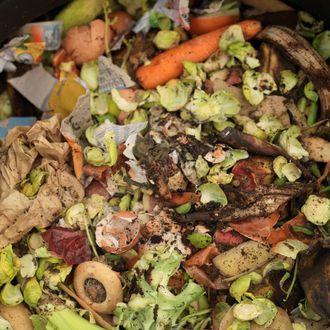
A new proposal by Jersey lawmakers is poised to make the Garden State a serious player in the food-waste fight. Under a bill that’s moving through the legislature, restaurants, supermarkets, hospitals, and other establishments that produce considerable food waste (104 tons per year at first, then 52 tons after the first three years) would be required to separate and save all leftover scraps. These scraps would then be converted into renewable energy used to power homes, schools, and businesses statewide.
In terms of design, the idea is similar to the new food-waste rules in New York City, but would obviously be for the entire state of New Jersey. As the bill is currently worded, so-called “large food-waste generators” located within 25 miles of an authorized waste-to-energy facility could either ship over their unused food, or pay a fine and continue heaping it onto the $160 billion food-trash pile Americans create every year. According to statistics, New Jersey also ranks fifth-worst in the nation in terms of renewable-energy generation, right next to Delaware and Rhode Island, so this bill could also finally give the state some mid-Atlantic bragging rights.




